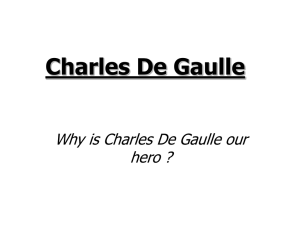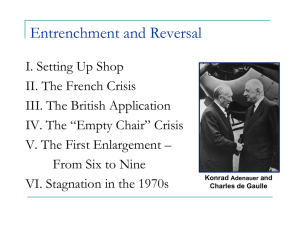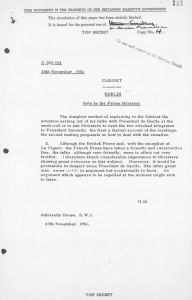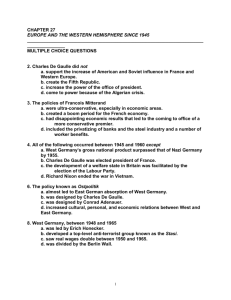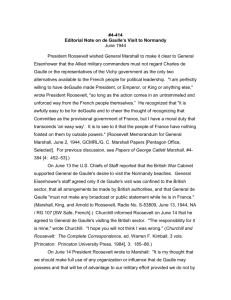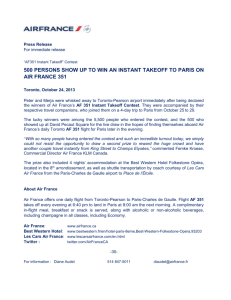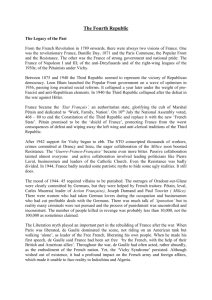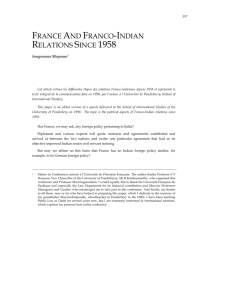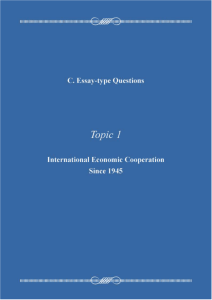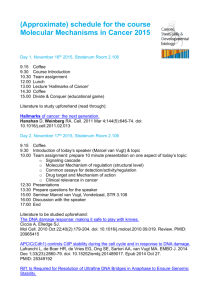Philosophical Books
advertisement
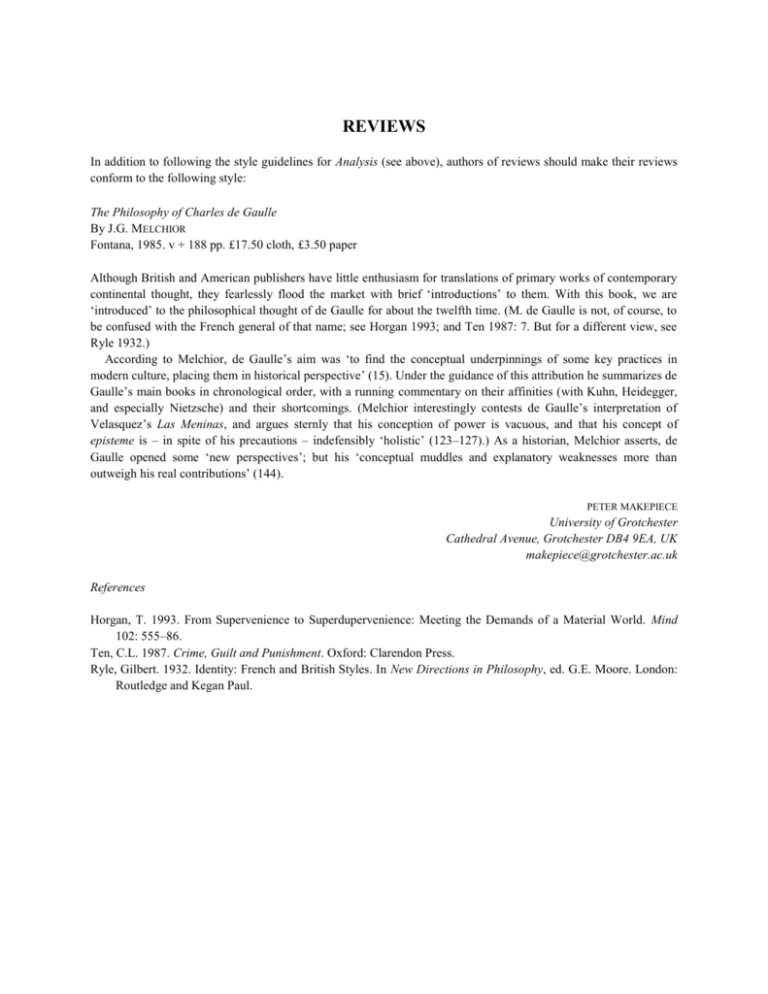
REVIEWS In addition to following the style guidelines for Analysis (see above), authors of reviews should make their reviews conform to the following style: The Philosophy of Charles de Gaulle By J.G. MELCHIOR Fontana, 1985. v + 188 pp. £17.50 cloth, £3.50 paper Although British and American publishers have little enthusiasm for translations of primary works of contemporary continental thought, they fearlessly flood the market with brief ‘introductions’ to them. With this book, we are ‘introduced’ to the philosophical thought of de Gaulle for about the twelfth time. (M. de Gaulle is not, of course, to be confused with the French general of that name; see Horgan 1993; and Ten 1987: 7. But for a different view, see Ryle 1932.) According to Melchior, de Gaulle’s aim was ‘to find the conceptual underpinnings of some key practices in modern culture, placing them in historical perspective’ (15). Under the guidance of this attribution he summarizes de Gaulle’s main books in chronological order, with a running commentary on their affinities (with Kuhn, Heidegger, and especially Nietzsche) and their shortcomings. (Melchior interestingly contests de Gaulle’s interpretation of Velasquez’s Las Meninas, and argues sternly that his conception of power is vacuous, and that his concept of episteme is – in spite of his precautions – indefensibly ‘holistic’ (123–127).) As a historian, Melchior asserts, de Gaulle opened some ‘new perspectives’; but his ‘conceptual muddles and explanatory weaknesses more than outweigh his real contributions’ (144). PETER MAKEPIECE University of Grotchester Cathedral Avenue, Grotchester DB4 9EA, UK makepiece@grotchester.ac.uk References Horgan, T. 1993. From Supervenience to Superdupervenience: Meeting the Demands of a Material World. Mind 102: 555–86. Ten, C.L. 1987. Crime, Guilt and Punishment. Oxford: Clarendon Press. Ryle, Gilbert. 1932. Identity: French and British Styles. In New Directions in Philosophy, ed. G.E. Moore. London: Routledge and Kegan Paul. CRITICAL NOTICES, ETC. It would be very helpful if authors of longer articles (contributions to book symposia, ‘recent work’ articles and critical notices) would make their article conform to the style in the following sample. The editor will supply the formatting for all headings. Title of Article YOUR NAME 1. Introduction Although British and American publishers have little enthusiasm for translations of primary works of contemporary continental thought, they fearlessly flood the market with brief ‘introductions’ to them. Here is another (Melchior 1985), and with this book, we are ‘introduced’ to the philosophical thought of de Gaulle1 for about the twelfth time. 2. First Section According to Melchior, de Gaulle’s aim was ‘to find the conceptual underpinnings of some key practices in modern culture, placing them in historical perspective’ (Melchior 1985: 15). Under the guidance of this attribution he summarizes de Gaulle’s main books in chronological order, with a running commentary on their affinities (with Kuhn, Heidegger and especially Nietzsche) and their shortcomings. (Melchior interestingly contests de Gaulle’s interpretation of Velasquez’s Las Meninas, and argues sternly that his conception of power is vacuous, and that his concept of episteme is—in spite of his precautions—indefensibly ‘holistic’ (1985: 127).) As a historian, Melchior asserts, de Gaulle opened some ‘new perspectives’; but his ‘conceptual muddles and explanatory weaknesses more than outweigh his real contributions’ (1985: 144). 3. Conclusion The story is told that Gilbert Ryle once reviewed a book called ‘A Pint of Philosophy’; his review consisted of the words ‘Short measure’. It is unfortunate that the title of the present book does not make them appropriate here. The University of Grotchester Cathedral Avenue, Grotchester DB4 9EA, UK makepiece@grotchester.ac.uk References Melchior, J.G. 1985. The Philosophy of Charles de Gaulle. London: Fontana. Horgan, T. 1993. From Supervenience to Superdupervenience: Meeting the Demands of a Material World. Mind 102: 555–86. Ten, C.L. 1987. Crime, Guilt and Punishment. Oxford: Clarendon Press. p. 7. Ryle, Gilbert. 1932. Identity: French and British Styles. In New Directions in Philosophy, ed. G.E. Moore. London: Routledge and Kegan Paul. 1 Not, of course, to be confused with the French general of that name—see Horgan 1993; Ten 1987, p. 7. However, for a different view, see, Ryle 1932). Please note: Please send your article by e-mail attachment as a Word document (not a PDF, or a LaTex document). My email address is ajellis@ vcu.edu.
